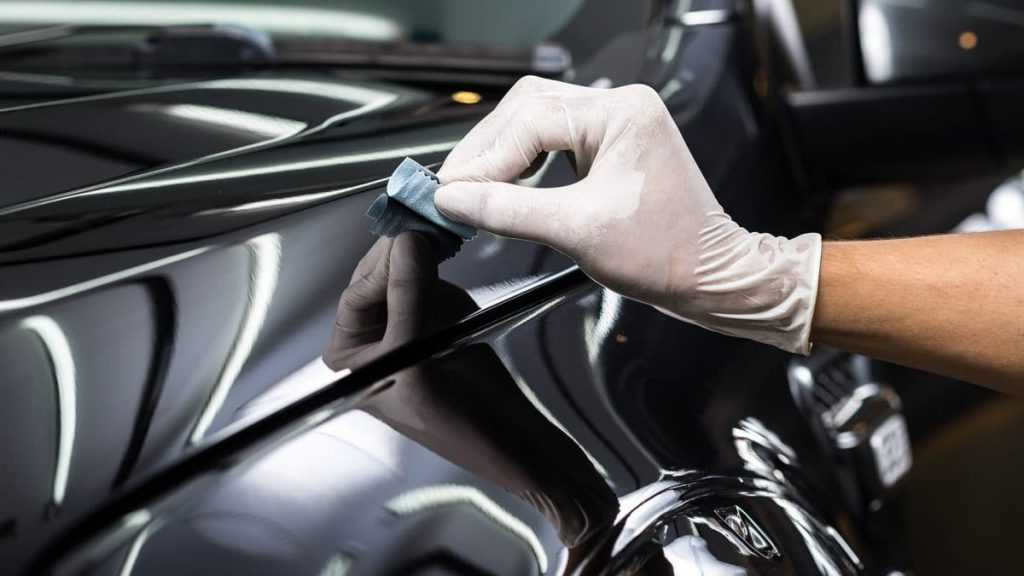Ceramic coatings are worth purchasing for most cars due to the long-lasting protection they offer against dirt and chemical contaminants and nearly zero side-effects on a car’s original paint.
However, shady marketing pitches on durability, thickness, gloss, and other factors often contribute to the making of myths, some of which are true while others are not even close.
Like many car owners, you might know part of the truth about ceramic coatings and have some of misconceptions too. In this article, we’ll highlight what is TRUE and what is NOT about these products.
Contents
- 12 Popular Myths and the Truth About Ceramic Coatings
- Scratches Will Be the Least of Your Concerns.
- The Car Enjoys Absolute Resistance to Chemicals
- Bullets and Fires Won’t Cause Any Problem
- Your Car Becomes Resistant to Rock Chip
- Ceramic Coatings Offer Better Gloss Than Any Sealant or Wax.
- A Ceramic Coating Heals Damages
- Soak Substances Won’t Be Required Anymore!
- Days of Car Wash, Prep Works, or Maintenance Are Gone.
- You’ve Got a Permanent Solution!
- A Ceramic Coating Easily Peels off.
- Applying Ceramic Coatings Is Easy and Simple.
- Ceramic Coating, Glass Coating, and Nano Coating Are NOT Different.
- Final Thoughts
12 Popular Myths and the Truth About Ceramic Coatings
Some of the beliefs or concepts discussed here are associated with the merit of getting these coatings while others are related to their maintenance and usability.
Scratches Will Be the Least of Your Concerns.

As far as scratches are concerned, you might have heard that some coatings are “scratch proof” and some are “scratch resistant”. You shouldn’t stay assured that ceramic coatings help with all types of scratches.
In fact, ceramic coatings, if applied correctly, may help resist some scratches which are basically either marring or swirl marks caused by brushes, brooms, wash mittens, dry towels, and virtually anything hard that touches the paint abruptly.
The Car Enjoys Absolute Resistance to Chemicals
Nano ceramic coatings feature excellent hardness which can protect the paint coating. But you cannot sleep on the promise forever that chemicals like tar removers, degreasers, and others containing alcohol won’t cause any harm.
These chemicals can eat away at a car’s clear coat slowly and penetrate fully to the paint. Eventually, you’ll see signs of damages. Some manufacturers claim that their coatings have 9H and can prevent the chemicals from further penetration. It might be true for a few years, but you shouldn’t allow continued exposure of your car to these chemicals.
A lot of car owners who count on such coatings believe that tar becomes less likely to stick to their vehicles. The number of people who don’t harbor this belief is not small either. In practice, the surface your car gets after a ceramic coating is not very friendly to tar or similar chemicals.
Bullets and Fires Won’t Cause Any Problem
There have been lots of expectations from ceramic coatings that contain 9H. According to the Moh scale that expresses mineral hardness, 9H is very close to diamond, being just one level lower and way harder that steel (H4) which has only 4.5 on this scale. However, these coatings don’t create any force field. So, it cannot really protect a vehicle against bullets.
Well, can such a coating protect your automobile against fires? Some Nano coatings may be exceptionally good at preventing heat exposure or UV rays from causing damages, but that doesn’t include any protection against fires.
Your Car Becomes Resistant to Rock Chip
Ceramic coatings are not pliable and soft enough to avoid damages from rock chips. Unlike a Pain Protection Film (PPF) product, ceramic doesn’t contain flexible polymer, and so, it cannot absorb the varying impacts of rock chips and debris.
Ceramic Coatings Offer Better Gloss Than Any Sealant or Wax.
If you are not sure of the effects of ceramic coatings as to a glossy look, you should know that coatings don’t bring much gloss, and their job is to improve and protect what lies underneath. All you can do is get rid of any blemish on the paint before applying the coating.
If any portion of the paint is faded, it won’t essentially go away but you’ll experience some shiny effects. That is what coatings can do at their best. For richer gloss, you can apply some high-gloss polish that adds a thin layer of glassy substance to help enhance the shine and luster of a Nano-Ceramic coating. So, the surface reflects light really well.
As for wax, a car coated with ceramic products doesn’t need another sacrificial layer which wax adds. Sometimes, wax or sealant may bring counterproductive results.
A Ceramic Coating Heals Damages
Cars are always susceptible to corrosive effects of road byproducts, bird droppings, insects, rocks, sticks, etc. Since none of these things are likely to put any devastating effect, car owners may not worry about damages.
Well, you won’t regret only if you can remove anything that sticks on the coating within 2-3 days. The faster you do this, the better it’ll be for your car. Remember that ceramic coatings are not like PPF products and therefore not known for healing those damages.
Soak Substances Won’t Be Required Anymore!
As soon as a car gets coated with ceramic, it starts benefitting from a hydrophobic effect that causes the accumulated water on the surface to form beads. By the time, water starts rolling off, it collects most of the dirt, grime, or mud that might lie on the surface.
There are strong arguments in favor of ceramic coatings that their hydrophobic properties force dirt, mud, ice, and snow to slide off the surface. Even, you can expect very little effects of water spots. However, decontamination of the surface and improvement of the shine are different from mere removal of the dirt. Based on this fact, coatings are not as effective as soak substances.
Ceramic coatings make the cleaning procedure easier and faster, not essentially eliminate the need. So, you cannot rule out the future needs for using automotive soap and shampoo which not only remove the unwanted dirt but also allow the pain to shine through for years.
Days of Car Wash, Prep Works, or Maintenance Are Gone.

That you have coated your car with ceramic doesn’t essentially give you any leeway to stop taking care. It is okay to find pleasure in the ease and speed you’ll enjoy during the washing. Even, the frequency (how often to wash) can be reduced. But looking the other way won’t help you much, no matter how expensive or strong the coating is.
You’ve Got a Permanent Solution!
Most coating products come with warranties of a certain number of years. Those with a lifetime warranty may last much longer than others, but that cannot be a lifetime commitment, and the number of years depends on the quality, amount and variety of elements in a coat, prep works, and accuracy of application.
A Ceramic Coating Easily Peels off.
The way these coatings wear off creates a confusion as to any effect like colored area, shaped stain or spot, or any splotched zone. It experiences chemical breakdown and then physical deterioration just like the way wax does.
As it starts failing, you’ll notice considerable decline in its certain capabilities, such as dirt shedding, water beading, etc. However, the entire coating is not likely to wear off at a time.
Applying Ceramic Coatings Is Easy and Simple.
Having some coating skills and high-quality DIY kits, you may want to give it a try. The project can be easy if you aren’t serious about the results.
For a durable, effective, and professional-grade finish, you have to ensure that the vehicle is free of swirl marks, scratches, and other blemishes. This involves buffing, claying, and washing the car. Will you consider the job to be simple?
Ceramic Coating, Glass Coating, and Nano Coating Are NOT Different.
Since all three of these coatings are meant to serve virtually the same purpose, you might think they are not much different from each other. But apart from the difference in some materials used in their preparations, ceramic coatings provide a thicker layer with greater resistance to acidic and alkaline cleaning agents.
Again, those who look for coatings get confused about the types of ceramic products which are of two distinguished types, such as consumer and professional grade. The former is meant for single-level application and not as thick as the latter that requires multiple steps to become as hard as expected.
The above myths often cause people to find themselves in a difficult situation because of the hearsays and practicality involved. Hopefully, you’ve come to understand the truth and find clear resolutions for the surrounding myths. Feel free to shoot a message if you need further clarifications or explanations.
Final Thoughts
So, you see a ceramic coating provides a strong, protective layer, but that doesn’t essentially make a car resistant to bullets, fires, or scratches. Washing a vehicle with such coatings is easy, but you shouldn’t give up on soap, shampoo, or similar substances.
Also, these coatings have something to do with the enhancement of gloss, but additional materials are required for improved gloss and shine. Choose your coatings wisely, especially when considering one between consumer and pro grade products.
The above myths often cause people to find themselves in a difficult situation because of the hearsays and practicality involved. Hopefully, you’ve come to understand the truth and find clear resolutions for the surrounding myths. Feel free to shoot a message if you need further clarifications or explanations.


